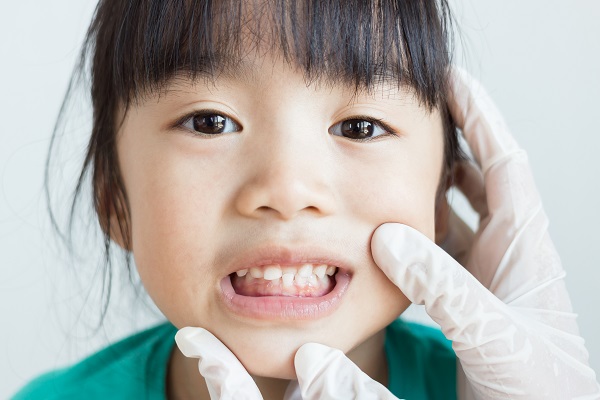Pediatric Dentistry: Are Root Canals for Kids Safe?

Root canals that are done in a Pediatric Dentistry setting may spark anxiety in parents who do not want their children to endure pain. The term "root canal" once held a meaning that frightened people, no matter what age. However, as technology has greatly improved, root canal procedures are now done a lot differently than they once were, especially for pediatric dentistry patients. Ready to find out more?
Root canals in pediatric dentistry
Below is a quick overview of pediatric root canals, including what they are and whether they are safe. This information can be useful to parents who feel anxious or uncomfortable about the procedure.
What is a pediatric root canal?
A pediatric root canal is a procedure that is done to remove the infected pulp from the interior of a tooth. The goal of a pediatric root canal is the same as an adult one, however, the approach may vary for pediatric patients. Outlined below are the steps of the procedure:
- The child will be given a numbing agent and sedative to help eliminate pain and keep them calm
- A dental drill will be used to access the infected pulp. The drill also removes these areas
- The pediatric dentist will thoroughly clean the cavity of the tooth and disinfect it
- A rubber material called gutta-percha will be used to fill the empty cavity, thus sealing it off and protecting it
- Finally, a temporary dental crown will be placed until a permanent one is created
A few weeks after the root canal is complete, the pediatric dentist will have the child return for the placement of the permanent dental crown, which will act as a restoration for the tooth. Children can then treat it like a normal tooth, ensuring proper oral hygiene.
The safety concern with pediatric root canals
Parents are often concerned about the safety aspect of root canals in pediatric dentistry. Some of the children who require the procedure are very young, which can be scary for them and their parents. Additionally, the sedatives used may worry parents as the after-effects can linger. However, it is important to understand that root canals are very safe and are often required in order to ensure the child's oral health.
Pediatric dentists only recommend a root canal when absolutely necessary, meaning that the tooth requiring it has to be in pretty bad condition. Without the procedure, the tooth may be at risk of falling out completely, causing a lot of pain or even affecting nearby teeth and gums. All of these risks can be very harmful to a child's oral and overall health, which is why the procedure is necessary.
Pediatric dentists undergo extensive education and training to learn how to safely perform procedures that require aggressive techniques, such as root canals. They strive to employ a gentle approach that ensures the safety of the tooth and the child's overall wellbeing.
Find out more from a pediatric dentist
Parents who want further information on pediatric root canals can reach out today. The dentist can address concerns or answer questions about the procedure and the safety of it. Additionally, preparation tips can be discussed, which can be helpful in calming parent's and children's nerves. Contact us today to learn more about the procedure or to schedule an appointment.
Request an appointment here: https://nettsmiles.com or call Nett Pediatric Dentistry & Orthodontics at (623) 759-7658 for an appointment in our Phoenix office.
Check out what others are saying about our dental services on Yelp: Pediatric Dentistry in Phoenix, AZ.
Recent Posts
Regular visits to a pediatric dentist who specializes in young patients are an important part of establishing good oral health practices. Many instances of severe dental conditions in children stem from either a lack of regard for proper hygiene or a lack of knowledge on the proper ways to care for a child's teeth. Check…
Pediatric dental care supports children's health, comfort, and development. Not only does it strive to detect and treat oral health problems early, but it also desensitizes children to dental visits to make each experience more comfortable. This special care and attention can motivate children to take good care of their teeth from a young age.Dental…
Cavity treatment for kids is a chief concern among parents, and for a good reason. Cavities are common in children of all ages. According to the Centers for Disease Control and Prevention, over half of the kids ages 6 to 8 have had at least one cavity in a primary tooth. The good news is…
Pediatric dentistry focuses on the oral problems that occur in children. Many dental issues in kids are similar to those that occur in adults. Without proper treatment, dental problems can progress to misaligned teeth and poor oral health. If you want to maintain your child’s dental health, here are the common dental issues that pediatric…


